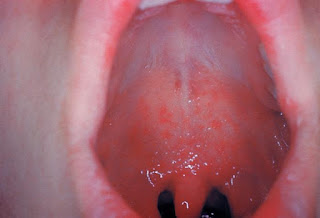Measles Outbreak in the Middle East 2023
A measles outbreak is currently underway in the Middle East.
As of March 8, 2023, there have been over 10,000 cases reported in the region,
with the majority of cases in Yemen, Iraq, and Syria. The outbreak is being
driven by low vaccination rates, conflict, and displacement.
Measles is a highly contagious respiratory illness that can
cause serious complications, including pneumonia, encephalitis, and death. The
measles vaccine is safe and effective, and it is the best way to protect
children from this disease.
If you are traveling to the Middle East, it is important to
make sure that you are up-to-date on your measles vaccination. You can also
help to protect yourself and others by washing your hands frequently and
avoiding close contact with people who are sick.
Here is some additional information about the measles outbreak in the Middle East:
- The World Health Organization (WHO) has declared the outbreak a "public health emergency of international concern."
- The United Nations Children's Fund (UNICEF) has warned that the outbreak could lead to a "major humanitarian crisis."
- The outbreak has caused significant disruption to schools and businesses in the region.
- The WHO and UNICEF are working with governments and partners to scale up vaccination efforts and provide support to those affected by the outbreak.
Here are some things you can do to help prevent the spread of measles:
- Get vaccinated. The measles vaccine is safe and effective.
- Wash your hands often.
- Avoid close contact with people who are sick.
- If you are sick, stay home from work or school.
- Cover your mouth and nose when you cough or sneeze.
- Throw away used tissues.
- Clean and disinfect surfaces and objects that may have been contaminated with saliva or mucus.
Symptoms of Measles
The symptoms of measles usually appear 7 to 14 days after
exposure to the virus. The most common symptoms are:
- Fever
- Cough
- Runny nose
- Red, watery eyes
- Rash
The rash usually starts on the face and then spreads to the
rest of the body. It is a red, flat rash that often appears as small, raised
bumps. The rash usually lasts for 5 to 7 days.
Complications of Measles
Measles can cause serious complications, including:
- Pneumonia
- Encephalitis (inflammation of the brain)
- Meningitis (inflammation of the membranes that surround the brain and spinal cord)
- Death
Treatment for Measles
There is no specific treatment for measles. Treatment is
supportive and includes:
- Rest
- Fluids
- Medication to reduce fever and pain
Prevention of Measles
- The best way to prevent measles is to get vaccinated. The measles vaccine is safe and effective. It is given as two doses, the first at 12 to 15 months of age and the second at 4 to 6 years of age.
- If you are not sure if you have been vaccinated against measles, talk to your doctor. You may need to get a vaccination.





Comments
Post a Comment